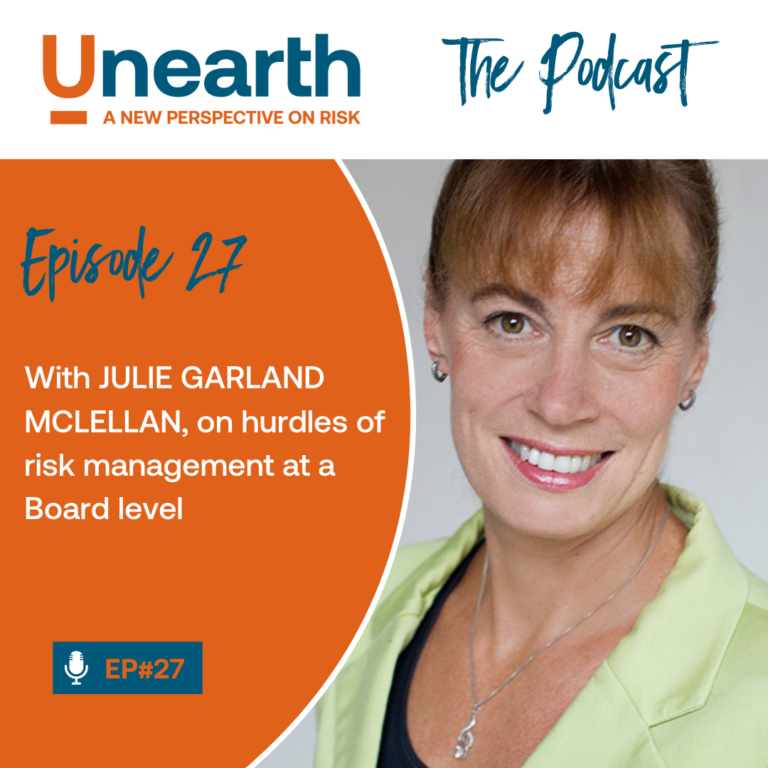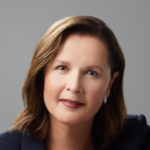Have you ever wondered what it must be like to be a member of a Board, having accountability for a business entity but without the day-to-day management, influence, and control?
In this episode, I am joined by Julie Garland McLellan, who is a CEO, advisor to Boards and Directors, and the author of the ‘The Director Dilemma’ newsletter which is read in 33 countries.
Julie and I talk on some of the hurdles that so many Board members face in relation to risk management. So, this is a conversation you definitely don’t want to miss.
Julie has a fascinating background, as she is one of very few women to have commenced a board career with a single not-for-profit organisation and built it to a portfolio of boards including chairing an ASX listed company. Julie has chaired boards and committees and is respected for her practical experience.
Julie is a frequent speaker at conferences and is also a prized reference for journalists and has featured in ABC News’ Nightly Business Report, The Business Programme, The Australian Financial Review, The Financial Times (Britain), Company Director Journal, Keeping Good Companies, and other quality publications.
With more than 20 years’ experience delivering education programs for the Australian Institute of Company Directors, Julie has written more than 14 courses for that institute. She has also developed and delivered director education for the National Association of Corporate Directors (NACD), Director Institute, Governance Institute of Australia, College of Laws, University of Sydney, CPA Australia, The Taiwan Corporate Governance Association, The Oman Centre for Corporate Governance and Sustainability, and Better Boards Ltd.
In addition to her work developing director education Julie has continued to research and study directorship and most recently completed a course at Wharton Business School at the University of Pennsylvania. Julie is the author of several reference books for company directors including two that have been translated into Mandarin and are the global best sellers in their topic category.
Importantly, Julie is a qualified board reviewer and has conducted numerous reviews of boards, committees, and individual chairs and directors over the past 17 years. She has also won numerous awards including (twice) the Australian Institute of Company Directors Faculty award for contribution and excellence in governance education, the CPA President’s Award for Service and Excellence in Governance, The I E Business School Epic Award for Women Inspiring Women, and the Australian Business Award for Specialised Services in Board Advisory and Governance.
So, with all our collected experience, it was an opportunity for Julie and myself to have a candid discussion around risk and opportunity at a Board and Senior Executive level. Some of the points we covered include:
- Delegation of risk management
- The dangers of a ‘tick box’ approach to risk management
- When best intentions impede the abilities of your people
- Importance of a close relationship between Board and CEO
- The elephant in the room – Disengagement is not only about performance… it is about risk management
- Evidence of absence verses absence of evidence
- Board setting priorities to help with direction and motivation
- The need to separate development and performance discussions
- Importance of cross-training and internal training to support skills shortage, including examples of Australian Brands doing this well and not doing this well
If you have any questions, you would like Julie and I to discuss in our next discussion, then reach out and let us know what they are.
Connect with Julie Garland McLellan




